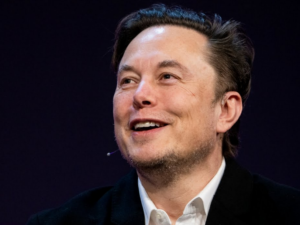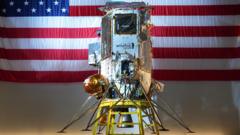Elon Musk's new initiative, the Department of Government Efficiency (DOGE), is highlighting questionable federal spending practices, including projects abroad and potential misuse of taxpayer money. Utilizing AI technology, the initiative has reported on various expenditures deemed wasteful, igniting debate over the extent of government oversight and accountability.
Elon Musk's DOGE Initiative Exposes Federal Spending Controversies

Elon Musk's DOGE Initiative Exposes Federal Spending Controversies
The establishment of the Department of Government Efficiency aims to uncover suspect federal expenditures, propelling discourse about government accountability and AI’s role in oversight.
Elon Musk’s latest venture, the Department of Government Efficiency (DOGE), is shedding light on suspicious federal spending practices, raising questions about the justification of various taxpayer-funded projects. Among the revelations are allocations such as $1.5 million directed toward “diversity, equity, and inclusion” initiatives in Serbia and a staggering $20 million intended for the establishment of a “Sesame Street” in Iraq, highlighting the perceived extravagance in government expenditures.
Particularly provocative is the funding for research on bat coronaviruses at the Wuhan Institute of Virology, which has incited concerns regarding the allocation of U.S. tax dollars toward overseas endeavors with minimal accountability. Additional expenditures, like pottery classes in Morocco, contribute to a troubling catalog of seemingly unnecessary federal allocations.
Musk’s team operates with remarkable speed, managing to uncover these instances of government waste within weeks of the new administration's arrival. The secret to their effectiveness lies in the adoption of artificial intelligence, which allows DOGE to analyze substantial data from agencies such as the Department of Education. The integration of AI-powered analytics tools has enabled real-time identification of expenditure inefficiencies.
Reports indicate they are utilizing Microsoft’s Azure cloud computing service to meticulously scrutinize every federal dollar, encompassing contracts, grants, and travel expenses. To facilitate this deep analysis, low-level agency employees were instructed to grant Musk’s team access to sensitive financial records, amplifying the scope of their investigation into taxpayer money management.
As further information continues to surface, the implications of these findings are igniting discussions about governmental practices concerning federal funding and the potential for AI-enhanced oversight to induce meaningful reform. With Musk leading the charge, the quest to eliminate wasteful spending is merely in its initial phase.




















